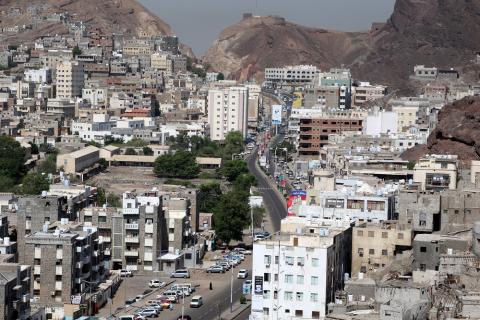
The European signatories of the 2015 Iran nuclear deal have been primarily focusing in the aftermath of last month’s US pullout from the pact on “avoiding a military confrontation,” senior French sources told Asharq Al-Awsat.
They asserted that some sides inside Iran “want and seek” this confrontation, whereas Germany, Britain and France, in cooperation with Russia and China, are striving to avoid reaching the “point of no return.”
At the same time, the sources have blamed Tehran for failing to take advantage of the nuclear deal to normalize its ties with regional countries. Instead, it exploited it to forge ahead with an aggressive regional policy and develop its ballistic missile program.
Some US circles, meanwhile, believe that Tehran will eventually “come to heel” under the weight of the newly reimposed American sanctions, while Paris believes that “no one in Washington wants a war on Tehran,” continued the sources.
Going against this trend is Israel and some non-Israeli powers that “are pushing for war”. Their calls have, at the moment, fallen on deaf ears in Washington.
It is no secret that French-Iranian contacts are being held on several levels. An official Iranian delegation was in Paris on Wednesday and French President Emmanuel Macron held telephone talks on the nuclear deal with his Iranian counterpart Hassan Rouhani last week.
France is pushing for Iran to remain in the nuclear pact and accept talks on the points of contention that were listed by the US when it announced its pullout. These issues namely center on Iran’s nuclear activity after 2025, it ballistic missiles program and regional policy.
Countering Iranian claims that the program has a defensive role, France wondered what was its purpose in developing intercontinental ballistic missiles that are capable of carrying a nuclear warhead. It also wondered what type of defense requires Iran to send rockets to Yemen, Syria and Lebanon. French circles believe that Iran’s establishment of militias “was no longer aimed at preserving national security, but destroying the infrastructure” of countries where they are active as part of a wider hostile expansionist agenda.
Despite these reservations, Paris is still committed to defending the nuclear deal and Macron’s demand that the above-mentioned contentious issues be resolved.
Iran has demanded European guarantees for it to remain in the deal, threatening to withdraw from it and resume unlimited uranium enrichment should these conditions not be met. Tehran, though, is in no position to make threats.
The sources said that Iran cannot, even if it wanted to, force French companies to stay in the Iranian market. Its major companies, such as Total and Groupe PSA, have major stakes in the US and other countries. They therefore cannot ignore the threat of US sanctions should they choose to remain in Iran.
Given this complicated situation, Paris had “advised” Iranian authorities to continue with the deal and comply with demands to discuss its ballistic missiles program and regional policy.
Paris is aware that Iran is caught between two opposing powers. The “moderate” camp wants to preserve the nuclear deal, saying that five of the six signatories have remained in the agreement. This will pave the way for more consultations and Tehran will not find itself in a confrontation with a global coalition. Moreover, given US President Donald Trump’s sharp shift towards openness with North Korea, when it appeared that Washington and Pyongyang were headed towards war, it seems that there are no final stances in the current American administration. A similar sharp turn on Iran, therefore, cannot be ruled out.
The other “revolutionary” camp, meanwhile, favors isolation and confronting the international community. It claims that trusting Washington and the West was impossible and the “only language they understand is force. Iran is strong, so therefore let us resist for 40 years if necessary.”
The French sources stressed that Iran must decide what camp it will follow. It must also support European capitals for them to be able to help it in return.












